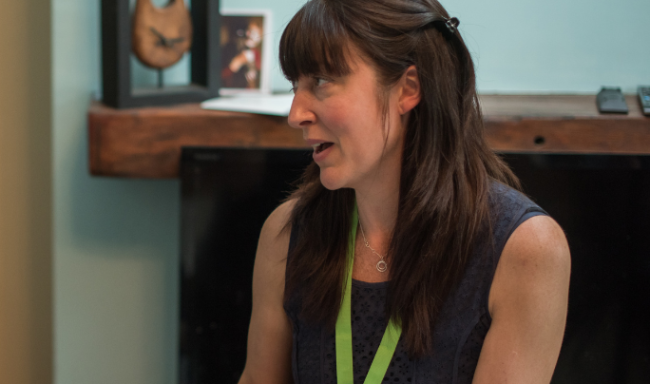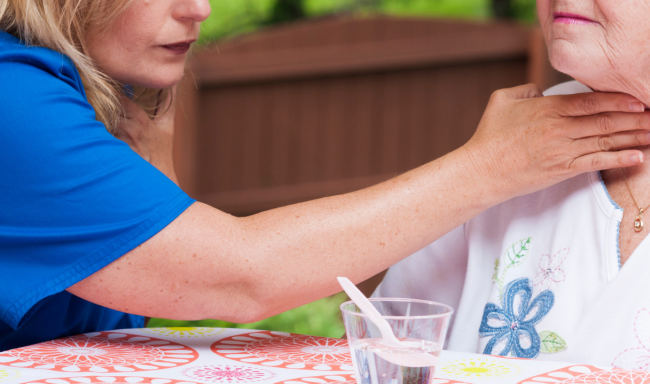We spoke to Liz Lemon, a community-based Speech and Language Therapist about how she supports people with Huntington’s disease.
Working with people with Huntington’s disease can be very challenging, but it’s also incredibly rewarding when you make small improvements to their daily living.
Liz qualified as a Speech and Language therapist in 2001 after moving from an office job to find something more meaningful. Her role is with Adults with Acquired Progressive Neurological Disease. She took a special interest in Huntington’s disease in 2017 after noticing that people with Huntington’s disease were being referred to our service multiple times over many years and unfortunately reaching crisis with their eating, drinking and nutrition.
Many of these people had not had any discussions about the future or made advanced decisions around their care. I wanted to help educate carers around this complex condition and support families and people with Huntington’s disease with future planning and to manage their swallowing and communication difficulties.
Liz says that most of their referrals come from GPs, Nursing Homes, District Nurses and Allied Health Professionals. Unfortunately, by the time they are referred, the majority are struggling to communicate and to eat, drink and swallow safely or comfortably due to their condition.
A Speech and Language Therapist aims to reduce the risk of aspiration, choking, malnutrition and dehydration. This has to be carefully balanced with ensuring the person is still able to enjoy food for as long as safely possible and it doesn’t reduce their quality of life.
Offering modified food like a puree diet or thickened fluids can negatively affect the enjoyment of eating and drinking. My advice is tailored to the person with Huntington’s disease, the family, the home environment and their quality of life now and for the future.
Speech and Language Therapist - Top tips
We asked Liz to share some tips that she has learnt throughout her career.
Position is vital
Encourage sitting out in a supportive, person-specific chair. Eating and drinking in bed is not recommended unless someone’s choreic movements are so unmanageable that it is the least risk to the person e.g injury, bruising. Really good, supportive chairs can help.
Encourage self-feeding for as long as possible
By removing the signal that food or fluid is coming (hand-to-mouth movement) the person with Huntington’s is often not ready and can choke. In my experience, people with Huntington’s prefer to feed themselves and struggle to accept assistance. Work with this by modifying diet, using plate guards, rubber place mats, and spouted beakers for liquidised food if required.
Don’t always put a spouted lid on beakers if you are feeding normal fluids
They funnel the fluid to the back of the throat too quickly and the patient can cough or choke resulting in requests for thickened fluid before it’s really indicated.
Don’t assume thickener is best
If this is aspirated, it's heavier and harder to clear from the chest.
Work with Huntington’s-related OCD around food selection
I have had many patients who will only drink milk, or only accept supplement drinks, only drink coffee, only eat at night or only feed themself. With the support of a Dietitian, we have reduced the risk of malnutrition and dehydration but ensured that the person’s likes and dislikes are accommodated, thereby reducing agitation and improving carer/patient relationships.
Refer to Special Care Dentistry
These Specialist Dentists are fantastic at managing the complex oral health of people with Huntington’s disease, who are at greater risk of gum disease and tooth decay/damage because of poor oral health and inability to complete oral care independently. Poor oral health increases the risk of chest infection and pneumonia because of the large number of pathogens in the mouth.
Reduce distractions
People with Huntington’s can struggle to multitask, so turn the TV off and reduce background noise during mealtimes. This should improve intake and reduce coughing/choking episodes when distracted.
Thank you so much to Liz for sharing her knowledge with us.





